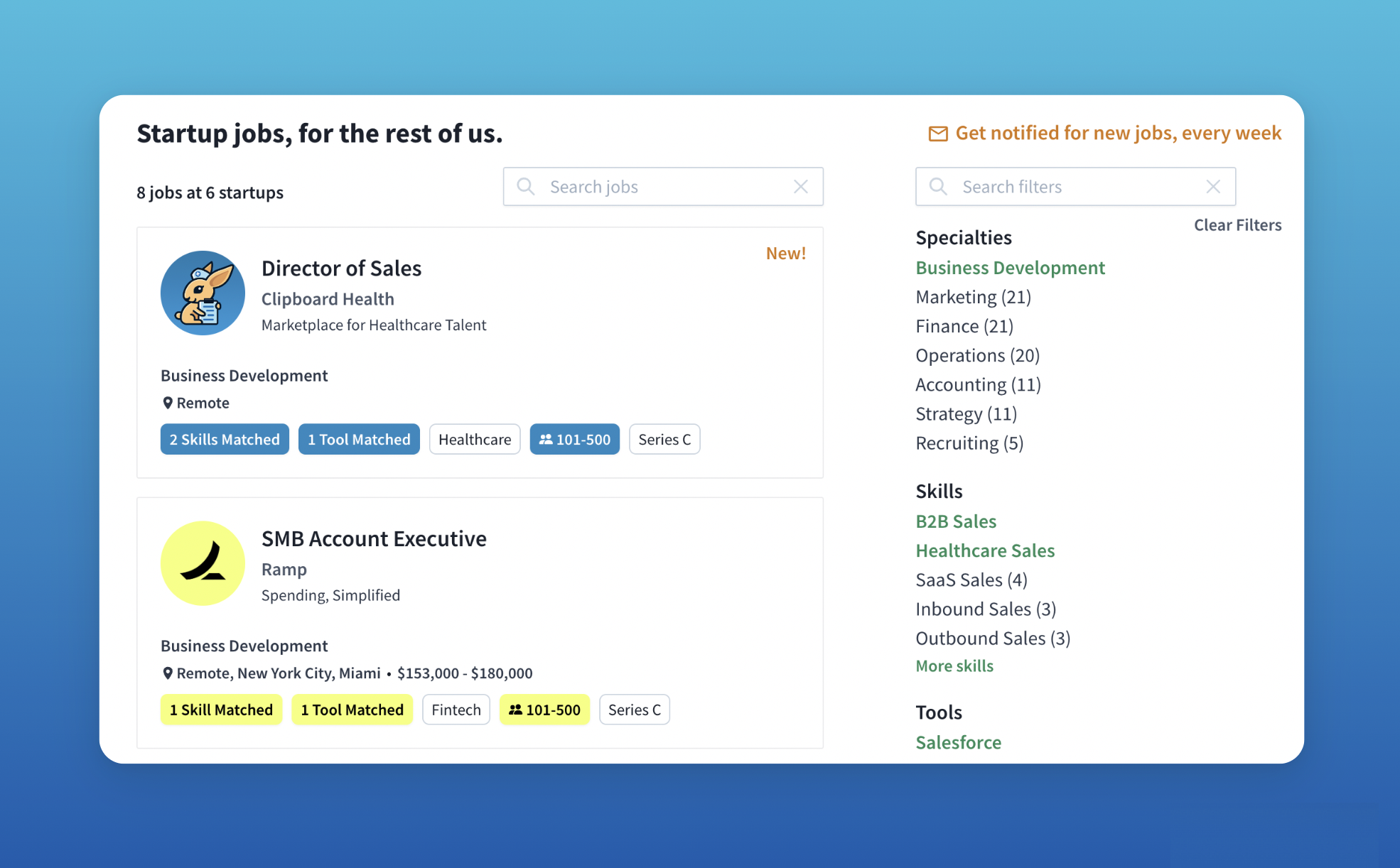Showcasing the transition to tech: David Shapir
Leaving Goldman investment banking to pursue his passion
Edited for brevity and clarity
Hi David, thanks for chatting with us today. Can you please walk us through your career?
Yes, no problem! I went to college in NYC and graduated as a Finance major. I was not sure what I wanted to do and studied Finance because I thought of it as a "good major with good job prospects". I was doing residential real estate in Manhattan, and while I was learning a lot, it was unstructured and informal.
So what followed?
I read a book about Goldman Sachs, and for lack of a better term, drank the kool-aid. The culture of ownership really intrigued me and I joined the firm. I started in the firm's commercial real estate business and ended in the TMT (tech, media, telecom) investment banking group, finding myself really drawn to the technical aspects of the job.
TMT investment banking at Goldman is the dream. Why leave?
It was certainly an interesting and challenging role, and much of what you hear is true – you can work on the highest-profile deals and transactions in the world! But investment banking is relationship-driven and I wanted to see more of a direct impact between my effort and results.
How did you decide where to go?
I knew I wanted to transition to tech – I opened my phone, looked at the apps I was using most and thought highly of. Uber was top of the list; I applied and eventually joined the company and spent more than 4 years there.
Can you tell us more about why you chose Uber?
I had a TMT background so tech made sense and Uber was a great entrypoint. After joining, I stayed because the company fostered intellectual curiosity and was collaborative. And while it was certainly intense (and occasionally overbearing), I found it more manageable.
What was the role like?
Like I mentioned, I was drawn to technical aspects, and I continued to pursue that at Uber. I focused on data analytics. We were getting mountains of data every day. My job was to help turn that data into actionable insights.
Early on in your transition to tech, did you have any regrets about leaving Goldman banking?
Sure, and I think that's natural. But what I did was look far out – 10, 15 years and ask myself what I valued. And while compensation remained important, I began to see the tradeoffs more clearly. And with that, the attractiveness of remaining in investment banking was reduced.
Anything else?
Yeah, maybe the last thing I'll add is that the benefits of staying were quantifiable and more-or-less known. Transitioning to any startup is much more variable; there is meaningful upside from a social and career perspective, but of course it comes at a higher risk. But there are other intangible benefits, which included unique intellectually challenging work, greater autonomy and the general satisfaction about doing something new and for the first time.
Can you tell us about the recruiting process?
There were classic headhunters, but they weren't very helpful. They kept pushing me to join a private equity fund or a hedge fund, and when I told them I was interested in something else, the reply was universally, "call us if you change your mind."
How did you approach recruiting then?
I struggled to narrow and filter a list of companies that I wanted to join; there were an overwhelming number of companies. I tried to find the best fit between my existing skillset and the direction I wanted to grow. I tried to speak with as many people as I could before making a decision: friends, current employees, managers and more.
How did your finance background help, if at all?
First, the tangible technical skills I built were helpful. But what was probably the most helpful was just knowing I could grind. Whatever came up, I knew to take it in stride and keep working toward the goal. Like I said, Uber was intense, but I found it manageable, and that's probably because of what I had done at Goldman.
Any interesting learning lessons as you transitioned from finance to tech?
I think at any bulge bracket firm, success requires being extremely attentive to the nth degree. Early on, I got feedback that I needed to stop doing that. I was spending too much time getting things from 90% complete to 100% complete, whereas I should have spent that incremental effort getting other initiatives to from 20 % to 70-80%.
What followed after Uber?
I joined Incredible Health as a Director, Analytics. I spent a year there before a really incredible opportunity presented itself at Talkiatry. Talkiatry is a NYC based startup whose mission is to provide high-quality, in-network psychiatric care throughout the United States. Making mental health care accessible and affordable is something I am passionate about and I joined the company earlier this year.
Any advice for people starting the recruiting process?
When starting the recruiting process, I would do a few things: (a) Scour your network and speak with as many people you know in tech. Getting a sense of the pace and various approaches to solving problems can give you a better sense of the type of stages, industries, companies, roles, etc. that you should target. (b) Take some courses on product development, coding and more to familiarize yourself with software development and how the different roles work with each other to deliver products to users. Coursera, Code Academy and others out there have some good content. Even if you don't want to move into a technical role, it's important to have some knowledge and "speak the language.""
Give us your recent best: meal, book and watch.
Meal is Tarte Tatin, which is a dessert. Best book I've recently read is Inspired. And I'm really enjoying Better Call Saul on Netflix!
More from moneymoves

The Associate Director of CX at Dr. Squatch, shares insights into the benefits of working at startups and essentials tips for landing a job and thriving in the startup environment.
3 months ago

Learn more about the latest WFH-friendly opportunities from exciting startups hiring today on moneymoves.
2 months ago

